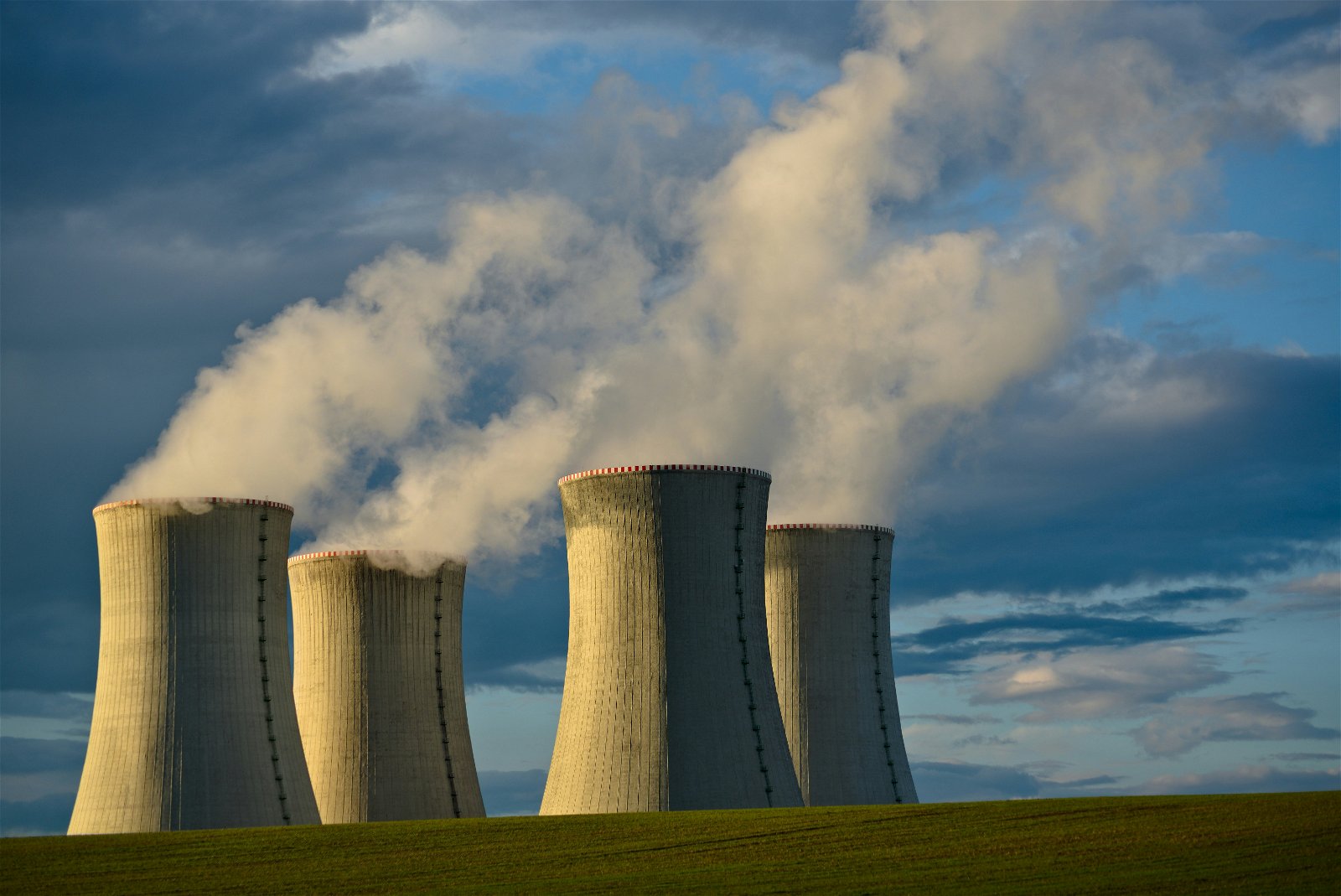The 10 best paying jobs in energy: a deep dive into high-paying opportunities


· 12 min read
The energy sector is a critical component of the global economy, and the demand for skilled professionals is constantly growing. As the renewable energy sector continues to flourish, new opportunities for high-paying jobs in energy are emerging. After covering environmental science jobs, we will explore the best-paying jobs in energy, focusing on both traditional and renewable energy jobs.
The energy industry plays a crucial role in powering our daily lives, from heating our homes to fueling our vehicles. As the world shifts toward more sustainable sources of energy, the renewable energy industry has experienced rapid growth. This has led to a surge in demand for top talent and high-paying jobs in energy, especially within the renewable energy sector.
The energy sector offers a diverse range of job opportunities that cater to various skill sets and educational backgrounds. With the ongoing transition from fossil fuels to renewable energy sources, there is an increasing need for skilled professionals who can contribute to the development and implementation of new energy systems. This growing demand has led to a rise in the number of high-paying jobs in energy, providing ample opportunities for those looking to enter the field.
In this section, we'll provide an overview of the top 10 best-paying jobs in the energy sector, highlighting the roles and responsibilities, required education, and potential salary ranges for each position.
Petroleum engineers are responsible for designing and developing methods for extracting oil and gas from deposits below the Earth's surface. They are an essential part of the oil and gas industry and work closely with geologists to locate and evaluate potential drilling sites.
A bachelor's degree in petroleum engineering, or a related field such as chemical engineering or mechanical engineering, is typically required for entry-level positions. A master's degree in petroleum engineering or a related field may be preferred or required for more advanced positions.
The median salary for petroleum engineers is around $97,672 per year, making it one of the highest-paying jobs in the energy sector.
While the oil and gas industry faces increasing pressure to transition to more sustainable energy sources, petroleum engineers will continue to play a vital role in optimizing existing resources and minimizing environmental impacts.
Geophysicists study the Earth's physical properties, including its magnetic and gravitational fields, to locate and assess natural resources such as oil, gas, and minerals. They also analyze seismic data to predict natural hazards like earthquakes and volcanic eruptions.
A bachelor's degree in geophysics, geology, or a related field is required for most entry-level positions. A master's degree or Ph.D. may be required for research or teaching positions.
The median salary for geophysicists is around $166,584 per year.
As the energy industry continues to evolve, geophysicists will play a crucial role in identifying and assessing new resources, particularly in the renewable energy sector.
Energy traders are responsible for buying, selling, and managing energy commodities such as electricity, natural gas, oil, and renewable energy credits. They analyze market trends and utilize financial instruments to hedge risk, optimize profits, and ensure a stable energy supply.

A bachelor's degree in finance, economics, business, or a related field is typically required. Some energy traders may also have backgrounds in engineering or other energy-related disciplines.
The median salary for energy traders is around $91,447 per year, with experienced traders potentially earning much higher salaries.
As the renewable energy sector continues to grow, energy traders will be in high demand to manage the complex market dynamics and ensure the efficient distribution of resources.
Solar energy systems engineers design, develop, and oversee the installation of solar power systems. As one of the best renewable energy jobs, they assess the energy needs of a building or community, determine the optimal system size and configuration, and ensure compliance with safety and regulatory standards.
A bachelor's degree in electrical, mechanical, or civil engineering is typically required. Some solar energy engineers may have a degree in renewable energy or a related field.
The median salary for solar energy systems engineers is around $108,360 per year.
As the demand for clean, renewable energy increases, the solar energy technician will play a crucial role in designing and implementing solar power systems, making it a high-paying job with strong growth potential.
Wind turbine technicians install, maintain, and repair wind turbines. They perform routine inspections, diagnose problems, and replace or repair malfunctioning components to ensure the efficient operation of wind farms.

A high school diploma or equivalent is required, along with specialized training from a technical school or community college. Some wind turbine technicians also receive on-the-job training.
The median salary for wind turbine technicians is around $55,214 per year.
With the growth of wind energy as a key component of the renewable energy industry, wind turbine technicians will be in high demand to maintain and service the increasing number of wind farm installations.
Nuclear engineers research, design, and develop nuclear technology, including nuclear power plants, reactors, and related equipment. They ensure the safe operation of nuclear facilities and work to improve the efficiency and sustainability of nuclear energy production.

A bachelor's degree in nuclear engineering or a related field, such as mechanical or chemical engineering, is typically required.
The median salary for nuclear engineers is around $94,067 per year.
Despite ongoing debates surrounding nuclear power, it remains an important source of energy. Nuclear engineers will continue to be needed to optimize existing power plants and develop advanced nuclear technologies.
Energy storage specialists design and develop systems for storing energy generated from renewable sources like solar and wind. These systems can include batteries, flywheels, and pumped-storage hydroelectric systems.

A bachelor's degree in electrical, mechanical, or chemical engineering is typically required. Some energy storage specialists may have degrees in renewable energy or a related field.
The median salary for energy storage specialists is around $75,082 per year.
As the renewable energy sector continues to expand, energy storage specialists will play an increasingly important role in integrating renewable energy systems into the grid, making it a promising and high-paying energy job.
Energy efficiency consultants assess the energy consumption of buildings and industrial facilities, identifying opportunities to reduce energy usage and improve overall efficiency. They develop strategies for implementing energy-efficient technologies and practices, often working closely with renewable energy consultants.

A bachelor's degree in environmental science, engineering, or a related field is typically required. Some energy efficiency consultants may have a background in construction management or building science.
The median salary for energy efficiency consultants is around $89,268 per year.
As energy-efficient buildings and operations become increasingly important, energy efficiency consultants will be in high demand to help organizations reduce their energy consumption and transition to renewable energy systems.
Smart grid engineers design, develop, and implement advanced energy systems that integrate renewable energy sources, energy storage, and demand response technologies. They ensure the reliability and efficiency of power generation and distribution while incorporating new energy technologies and concepts.

A bachelor's degree in electrical engineering or a related field is typically required. Some smart grid engineers may have specialized training in renewable energy or energy systems.
The median salary for smart grid engineers is around $78,814 per year.
As renewable energy becomes a more significant part of the energy mix, smart grid engineers will play a critical role in modernizing power grids and incorporating renewable energy technologies, making it a high-paying energy job with strong growth potential.
Energy policy analysts research and evaluate energy policies and regulations, assessing their impact on energy production, consumption, and environmental sustainability. They provide recommendations for policymakers, energy companies, and other stakeholders to support the development of effective energy policies and strategies.
A bachelor's degree in political science, economics, environmental science, or a related field is typically required. Some energy policy analysts may have advanced degrees in public policy or energy-related disciplines.
The median salary for energy policy analysts is around $76,181 per year.
As the world transitions to cleaner, more sustainable energy sources, energy policy analysts will be in high demand to help shape and guide the development of new policies and regulations to support the growth of the renewable energy industry.
The highest paying job in renewable energy is typically a Solar Energy Systems Engineer, with median salaries reaching around $108,360 per year. Renewable energy sector positions, such as solar energy technicians, wind farm site managers, and renewable energy consultants, also offer competitive salaries, making them attractive options for professionals seeking rewarding careers.
Energy is indeed a good career path, as the sector provides numerous high-paying jobs in both traditional and renewable energy industries. The renewable energy sector, in particular, is experiencing rapid growth, leading to an increased demand for skilled professionals in various roles, including solar energy technicians, wind turbine technicians, and renewable energy consultants.
To start a career in energy, consider pursuing a degree in a relevant field, such as engineering, environmental science, or economics. Degrees in renewable energy, civil engineering, and energy engineering can be particularly useful for breaking into the renewable energy industry. Gaining experience through internships and networking with professionals in the energy sector can also help you establish a strong foundation for your career.
For renewable energy careers, the best degrees typically include those in engineering disciplines, such as electrical, mechanical, and civil engineering, as well as degrees in renewable energy or energy systems. Degrees in environmental science, economics, and public policy can also lead to opportunities in renewable energy policy analysis and consulting.
An energy technologist is a professional who specializes in the application of technology to optimize energy production, distribution, and consumption. This can include working with renewable energy systems, such as solar power and wind energy, as well as more traditional power generation methods, like natural gas and nuclear energy. Energy technologists may work in various roles within the energy industry, such as power plant operators, energy efficiency consultants, or smart grid engineers.
The energy career cluster refers to a group of professions focused on the production, distribution, and efficient utilization of various energy sources. This sector includes careers related to traditional energy sources like oil, gas, and coal, as well as renewable alternatives such as solar, wind, and hydroelectric power. Professionals in this field work in diverse areas such as engineering, research and development, conservation, and energy management, aiming to ensure reliable and sustainable energy for the future.
The best degrees for renewable energy careers, which can lead to opportunities in renewable energy companies and some of the best-paying jobs in the sector, typically include engineering disciplines such as electrical, mechanical, and civil engineering. These degrees provide a solid foundation for various roles, including renewable energy consultant, solar project developer, and other positions in the renewable energy industry.

In addition to engineering degrees, specialized degrees in renewable energy or energy systems can offer focused training for those who aspire to work in this rapidly growing field. Degrees in environmental science, economics, and public policy can also be valuable for those interested in policy analysis and consulting roles within renewable energy companies. By pursuing one of these degrees, you can position yourself for a successful career in renewable energy, whether as a consultant, solar project developer, or another exciting role in the industry.
The highest-paying job at a power plant is typically that of a Plant Manager or Operations Manager, who oversees the overall operations, maintenance, and administration of the facility to ensure efficient and safe energy production. Salaries for these positions can vary depending on experience, location, and the size of the plant.
In conclusion, the best-paying jobs in the energy sector encompass a variety of positions across diverse energy generation methods, including traditional and renewable sources. As society continues to prioritize sustainable energy solutions, energy jobs focusing on renewable energy and energy efficiency will become increasingly valuable. These high-demand roles offer not only the potential for lucrative careers but also the opportunity to contribute to a more sustainable future for our planet.
Some of the highest-paying jobs in the energy sector include positions such as Plant Managers, Operations Managers, Renewable Energy Engineers, Energy Policy Analysts, and Energy Efficiency Consultants. These roles require a combination of technical expertise, strategic thinking, and effective communication skills, making them ideal for professionals seeking to make a significant impact on the industry.
To find energy jobs that align with your interests and skill set, it is essential to research various subsectors within the industry, such as solar, wind, hydroelectric, nuclear, and traditional fossil fuel-based energy generation. Networking, attending industry conferences, and staying informed about the latest trends and advancements in the energy sector can also increase your chances of finding a fulfilling and high-paying job in the field.
In summary, the energy sector offers numerous opportunities for those seeking the best-paying jobs in energy. From engineering and technical roles to policy analysis and management positions, the energy industry presents a diverse range of career paths that can lead to both personal and professional growth while promoting a more sustainable and eco-friendly world.
Alex Hong

Energy Transition · Energy
illuminem briefings

Hydrogen · Energy
illuminem briefings

Energy Transition · Energy Management & Efficiency
Inside Climate News

Oil & Gas · Ethical Governance
International Energy Agency

Energy Management & Efficiency · Energy Transition
Financial Times

Corporate Governance · Oil & Gas